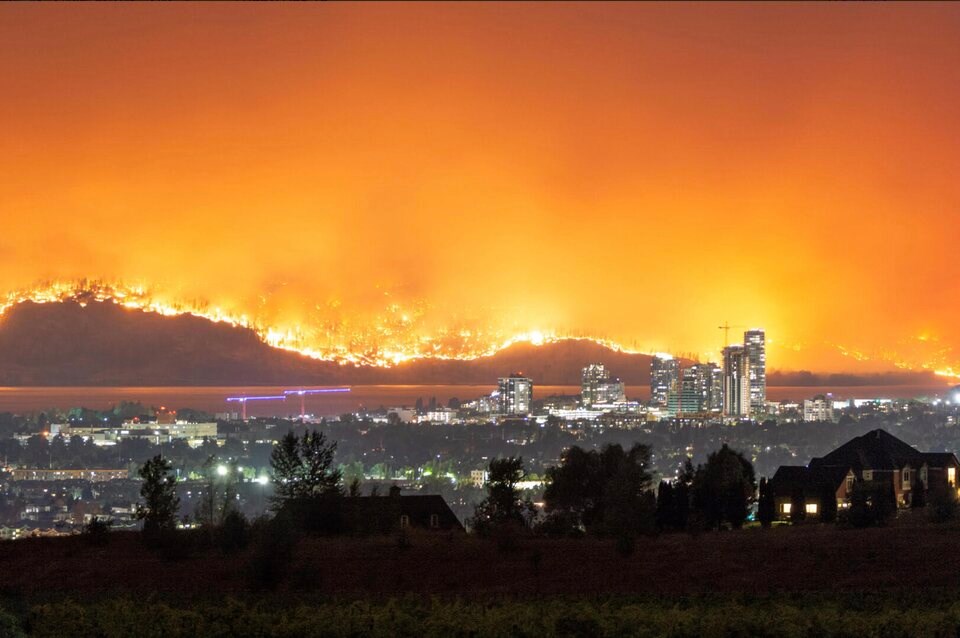Night has typically been a time for wildland firefighters to rest and regroup before temperatures spike in the morning. But according to a new study, drought is turning the “active day, quiet night” model on its head, and may force firefighters to rethink how they fight fires.
The study, published in the journal Nature Wednesday, used satellite imaging to track 1,095 overnight burning events in 340 wildfires across North America between 2017 and 2020.
Researchers from the University of Alberta, Canadian Forest Service and Thompson Rivers University found 99 per cent of overnight burns were connected to the big fires larger than 1,000 hectares — fires mostly found in the continent’s western mountainous areas. While making up only 10 per cent of fires over the study period, these fires accounted for 90 per cent of North America’s burned area.
“Those are the big fires, the intense fires. The ones that burn down West Kelowna and Shuswap. These all burn through the night,” said Mike Flannigan, a wildfire researcher from Thompson Rivers University and the study’s supervising author.
“It’s here and it’s only going to get worse.”
Honing in on the larger fires, Flannigan and his colleagues found nighttime burning was associated with “substantially hotter, drier and windier conditions.” Modelling later showed drought’s effect of drying out wood fuels “played a crucial role” in supporting overnight burning events and that daytime conditions “largely set the conditions for their occurrence.”
Because nighttime had to be at least four hours long and satellite data had to get through clouds and thick smoke, their results are likely on the conservative side, said Flannigan.
The results have major implications for firefighters, who often rely on reduced nighttime conditions to rehydrate and sleep. Flannigan said that while in British Columbia, wildland firefighters have pushed themselves to fight fires through the night in extreme cases — especially when fires are threatening communities — the old adage of “active day, quiet night” might need to be re-thought, especially as drought carries over into spring across much of British Columbia this year.
“I’m concerned about this season for a number of reasons — drought is one of them,” said Flannigan.
“The stage is set for a very active spring fire season.”




